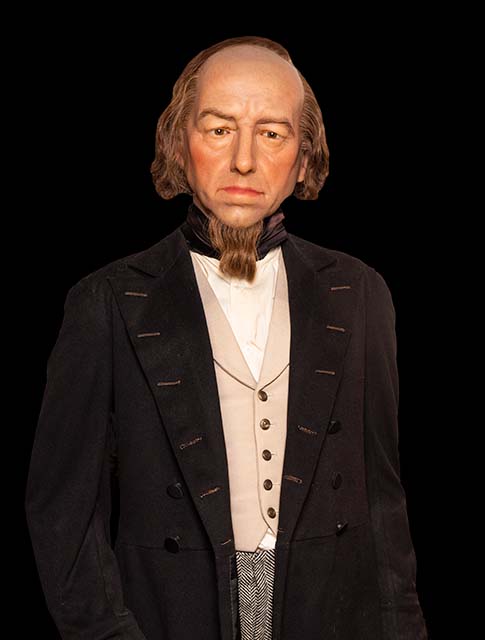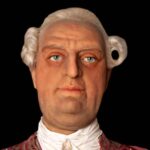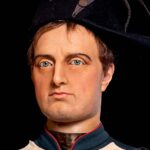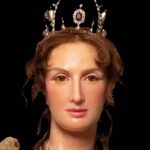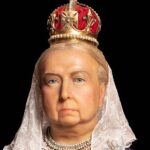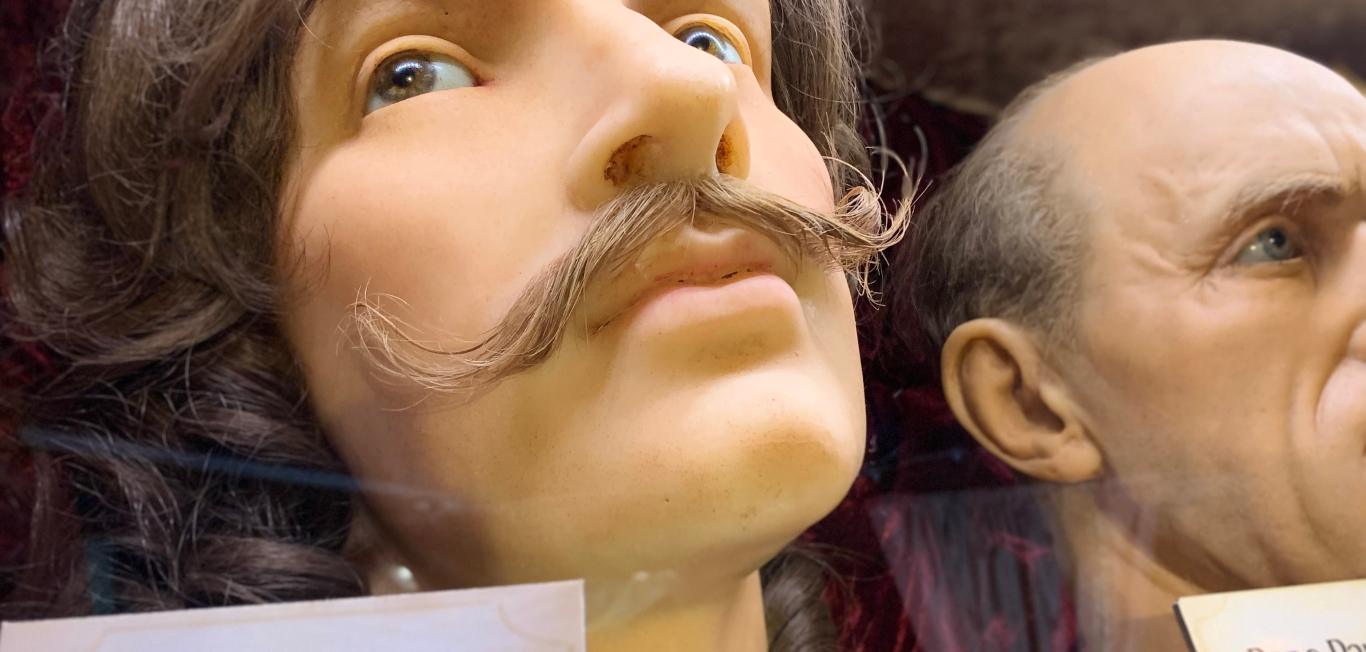Learn About Benjamin Disraeli
Benjamin Disraeli, born in 1804, was a prominent British statesman, novelist, and literary figure. He is best known for serving twice as the prime minister of the United Kingdom, first in 1868 and then from 1874 to 1880, making him the first British prime minister of Jewish descent.
Disraeli faced discrimination due to his heritage, but he overcame this challenge to become one of the most influential politicians in British history. His career continues to be studied by historians, who recognize him as an ambitious leader and a skillful politician.
Disraeli was renowned for his dual career as a politician and a novelist. Disraeli’s political career was marked by his advocacy for social reform and imperial expansion, as well as his skillful navigation of the complex political landscape of Victorian Britain. As a member of the Conservative Party, he played a key role in shaping its modern ideology, known as “One Nation Conservatism,” which emphasized social cohesion and the welfare of the working class.
In addition to his political achievements, Disraeli was also a prolific author, writing a series of novels that reflected his political and social views. His most famous works include “Sybil” and “Coningsby,” which explore themes of social inequality and political corruption.
DID YOU KNOW?
Disraeli was a prolific author.
Early Life of Benjamin Disraeli
Benjamin Disraeli was born on December 21, 1804, in Bloomsbury, Middlesex, England. There are two versions of Disraeli’s early life: what he experienced and what he told others. This left historians to theorize that one of the reasons Disraeli rewrote his family origins was to give himself status and fit in with the upper class.
Disraeli grew up in a middle-class Jewish household and began attending a Dame School at the age of 6. This school was considered to be a high-class institution. A couple of years later he was sent to Rev. John Potticary’s Cordwalles School.
In 1813, his father had a disagreement with the Bevis Marks synagogue, leading the Disraeli family to separate themselves from the synagogue and become patrons of the Church of England. Benjamin did not convert to Christianity until 1817.
At the age of 17 in 1821, Benjamin Disraeli began working with a legal firm owned by his friend’s father. A year after he joined the firm, he changed his birth name “D’Israeli” to “Disraeli.” Law wasn’t his passion, but his father hoped this job would provide financial security and even considered arranging a marriage between Disraeli and the firm owner’s daughter. However, Disraeli’s aspirations lay in politics, which he pursued to become a national figure. Despite this, he acknowledged that his time with the firm was a valuable experience.
Personal Life of Benjamin Disraeli
In 1834, Benjamin Disraeli became acquainted with Henrietta Sykes, who was involved with Lord Lyndhurst, a prominent statesman. Disraeli and Sykes began a relationship, which drew significant criticism. This affair later inspired the novel “Henrietta Temple,” published in 1837.
In 1839, Disraeli married Mary Anne Lewis, a widow who was 12 years his senior. While some speculated that Disraeli married Lewis for her considerable wealth, it was evident that they shared a deep concern for each other. Their relationship was marked by mutual respect and affection.
Interesting Facts About Benjamin Disraeli
Viscount Hughenden of Hughenden, Earl of Beaconsfield, and Dizzy were among Benjamin Disraeli’s popular nicknames.
Benjamin Disraeli was born as Benjamin D’Israeli. He removed the apostrophe from his last name in the 1820s.
Disraeli is known as a pioneer in writing political novels.
The Disraelis were originally Jewish and switched to Christianity, giving them a multicultural background.
Benjamin Disraeli was born Jewish but was baptized into the Church of England at the age of 12. The conversion came after his father Isaac had a dispute with their synagogue. This resulted in disdain for organized religion and caused difficulty for Benjamin in determining his future.
Benjamin Disraeli Served
as British Prime Minister
Benjamin Disraeli is renowned for his contributions to both politics and literature. Disraeli served as the prime minister of the United Kingdom twice, for a short time in 1868 and again from 1874 to 1880. He was a key figure in the Conservative Party, shaping its ideology of One Nation Conservatism, which emphasized social cohesion and welfare reforms for the working class.
DID YOU KNOW?
Disraeli served as prime minister twice.
Disraeli’s literary career was equally impressive. He is considered a pioneer of the political novel, blending his experiences in politics with his creative storytelling. His novels, including “Sybil” and “Coningsby,” often explored themes of social inequality, political corruption, and challenges facing society.
Despite facing discrimination due to his Jewish heritage, Disraeli overcame obstacles to become one of the most influential figures in British history. His legacy is celebrated for his contributions to literature, politics, and social reform, making him a remarkable figure of the Victorian era.
What Are Benjamin Disraeli's Major Works?
Benjamin Disraeli played a pivotal role in shaping the modern Conservative Party, defining its policies and expanding its appeal. He is renowned for his influential voice in global affairs, his political rivalry with Liberal Party leader William Ewart Gladstone, and his advocacy of One Nation Conservatism or “Tory democracy.”
Beyond his political career, Disraeli was a prolific writer, with a total of 28 published works, including 20 fiction and eight nonfiction works. His notable fiction works include “Coningsby,” “Henrietta Temple,” “The Young Duke,” “The Tragedy of Count Alarcos,” and “Venetia.” In his nonfiction works, such as “The Vindication of the English Constitution” and “England and France, or A Cure of the Ministerial Gallomania,” Disraeli expressed his views on political matters, showcasing his versatility as both a writer and a politician.
Awards and Achievements of Benjamin Disraeli
In 1876, Benjamin Disraeli was bestowed the title of Lord Beaconsfield by Queen Victoria, which granted him a seat in the esteemed House of Lords. Despite this honor, he continued to fulfill his duties as prime minister.
Following his death, a memorial was erected in Westminster Abbey to honor Disraeli’s legacy. Interestingly, this monument was suggested by his political rival, William Gladstone, indicating the respect and recognition Disraeli garnered even from those who opposed him.
Later Years of
Benjamin Disraeli
In 1852, Benjamin Disraeli served as Chancellor of the Exchequer in Lord Derby’s minority government. During his tenure, Disraeli presented a budget that favored the working class, leading to opposition backlash, partly due to lingering animosity from his actions against Peel in 1846. This contributed to the downfall of the Lord Derby government in 1858.
DID YOU KNOW?
Disraeli served as Chancellor of the Exchequer.
The British Parliament’s 1858-59 decision to allow Jewish individuals to hold administrative roles improved Disraeli’s prospects of becoming prime minister.
In 1868, following Lord Derby’s retirement from politics, Disraeli became the prime minister of Britain. His tenure was short-lived, as the Conservatives were defeated in the general elections later that year, with William Gladstone forming the new government.
In 1880, while publishing his book “Endymion,” Disraeli fell seriously ill with gout and asthma, which confined him to his home. His condition deteriorated, and he passed away in 1881, sparking grief among British citizens and the political community. His funeral, attended by his brother Ralph and nephew Coningsby, was notable for Queen Victoria’s absence, as tradition prohibited women from attending funerals. Victoria, though deeply affected by Disraeli’s death, was unable to pay her respects in person.
FAQs
Who was former British Prime Minister Benjamin Disraeli?
Benjamin Disraeli was a political author and a British statesman. He published 28 novels and served as prime minister twice before taking on other political roles under Queen Victoria.
What was unique about Benjamin Disraeli?
Benjamin Disraeli was unique because he was a Jewish politician, which was unheard of during his time. He also was a pioneer in writing political books.
What was Benjamin Disraeli famous for?
Benjamin Disraeli was famous for his work for the Conservative Party and for producing several pieces of legislation to improve educational opportunities.
What party was Benjamin Disraeli in?
Benjamin Disraeli was in the Conservative Party.
Who was Benjamin Disraeli’s wife?
Benjamin Disraeli’s wife was Mary Anne Disraeli. She was a member of high British society and the First Viscountess Beaconsfield.
